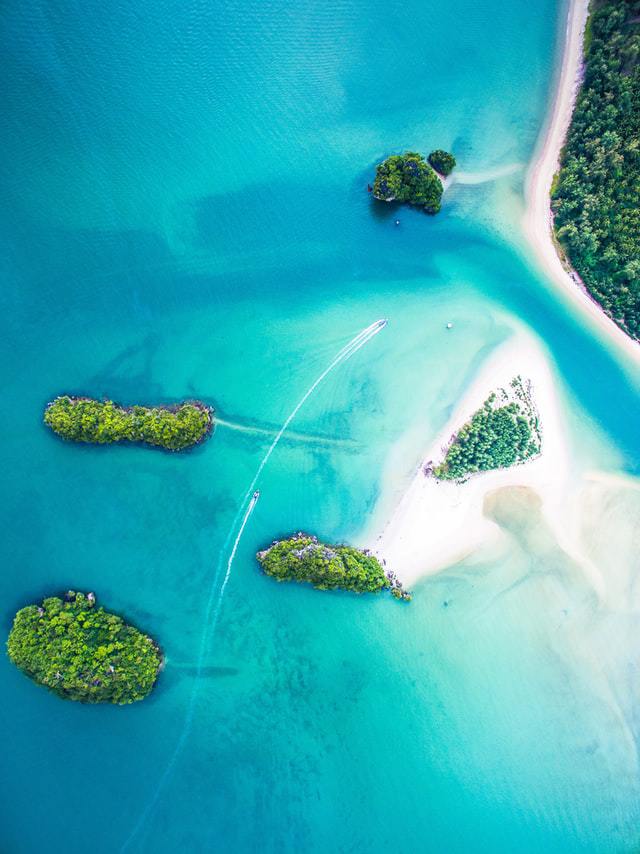Whether we want to admit it or not, everyone has a bucket list of the most amazing places to visit — be it a perfect, sandy beach in the Maldives, breathtaking, fairytale-like castles in Germany, or mesmerizing cliffs and nature in Ireland.
Unfortunately, while the beginning of 2020 seemed promising, all our plans and hopes were put on hold due to the COVID-19 pandemic that has had the entire world on lockdown. And, when we say “on hold,” we mean it — even the most crowded tourist places, like Times Square or the Eiffel Tower, now stand still, without thousands of people snapping selfies.
According to a survey conducted by Iata (International Air Transport Association), the statistics show that air travel has almost disappeared. Nowadays, international airlines perform at only about 10% of their normal levels. Moreover, more than 40 million people who work in tourism have feared losing their jobs because the pandemic had disastrous effects on this field.
Nevertheless, the industry hasn’t stopped working entirely — it has just become more resourceful. Many tourist destinations have had to find a way to attract people, albeit without physical contact. Numerous hotels and travel boards have decided to use VR (virtual reality), allowing people to visit all the places they had in mind from the safety of their homes.
In all honesty, while the entire VR industry is still young, it could be a permanent solution to help the tourist industry survive. Although nobody knows whether the VR trick will persevere, it can still be used for marketing purposes in the future.
Alternative to Real Travel
While VR has been hovering around tourism for quite some time, its moment to shine never really came. However, this is where the global pandemic has played a vital role, as it has given VR a chance to prove its worth.
It might be too early to make any assumptions. Still, virtual reality developers who have been working with VR for years believe that this technology can have a massive impact on travel destinations, which is why they have been encouraging people to check items off their bucket list by opting for VR travel. The concept of traveling remotely has become a thing, and some experts believe this is just the beginning of a much bigger story.
Key Elements That Help Maintain Interest in Traveling
In the current situation, numerous countries have resorted to VR to promote their best destinations and maintain the overall interest. One of the countries that took the bull by the horns is Germany, which has revealed various projects to promote its wonders and present them to the world as perfect travel destinations.
The GNTB (German National Tourist Board) has created an immersive 360° video explicitly designed for the Oculus Rift headsets. This video takes the viewer across the entire country, from Munich up to the North and Baltic sea coasts.
Further proof of Germany’s ambition is a project for Microsoft Hololens — an array of videos showing the country’s six most gorgeous and famous castles and travel destinations. While we are all aware that VR cannot replace authentic, in-person, physical travel, it seems like a reasonable solution to the current problem.
Since we can’t say when the travel restrictions will stop, VR technology is a crucial element that will keep people interested and entice them to book a plane ticket to Germany as soon as the pandemic quiets down.
How Is Technology Changing Tourism
Germany isn’t the only country that has recognized the potential of VR technology. Namely, Ireland has also joined the scene with a two-part VR experience that displays the natural beauty of Northern Ireland. Additionally, the Embrace a Giant Spirit project has used the popularity of the legendary TV show, Game of Thrones and created an experience that boasts the country’s wonders.
Therefore, we can all understand how technology influences and changes our perception of traveling. We also believe it will pave the way for VR and other innovative hi-tech solutions that will allow people to get a first-hand experience even from thousands of miles away.
But, Is It Worth It?
VR technology serves as a unique medium that helps people feel like they are traveling for real. It’s also a perfect opportunity to see whether you like the destination and all it has to offer. To make a simple comparison — it’s like buying a pair of shoes. You can try it out and, if you like what you see, you can book a plane ticket and start planning your vacation, knowing you’ll have plenty to see and do once you get there.
While this sounds great, one question remains unanswered — is it worth it? Can tourist destinations expect to get more visitors this way? So far, it’s been difficult to calculate, as investing in this technology doesn’t necessarily guarantee people will be interested in using VR to go to the Maldives and do yoga or snorkeling, for example.
Nevertheless, since all tourist agencies and destinations that depend solely on tourism want to survive this period, the VR investment might increase the conversion rate.

Benefits of VR in Travel
Although some are still hesitant about the idea of translating travel into a virtual reality experience, others believe we’ll begin seeing the perks of VR sooner rather than later. One of the main reasons VR is vital is that people familiarize themselves before paying insane amounts of money for plane tickets and hotels.
Experts say that once the restrictions ease up and the pandemic situation dies down, people, especially the younger part of the population, will want to travel everywhere. For them, booking vacations and planning trips won’t be challenging.
However, the other part of the population will need more convincing, and VR will serve as an ideal tool to help them decide. The videos could show whether a certain destination respects all security and health measures, explain what it’s like to board the plane under these circumstances, etc. It will make people feel more comfortable, increasing the number of bookings.
Of course, we have yet to see whether the VR trend will remain here even after the world gets out of lockdown. It’s still a relatively new idea that requires further development and investments. Although the benefits are apparent, we still have to wait and see how the public will react to this unique travel concept. In the meantime, if you have an itch to travel, and while waiting for VR to become more meantime, a ‘staycation’ is an excellent option to enjoy holiday time at home. Bring out the music, watch movies that explore other locations, and play games online – you can even find online games where a casino rewards free spins, so not an expensive option either.



